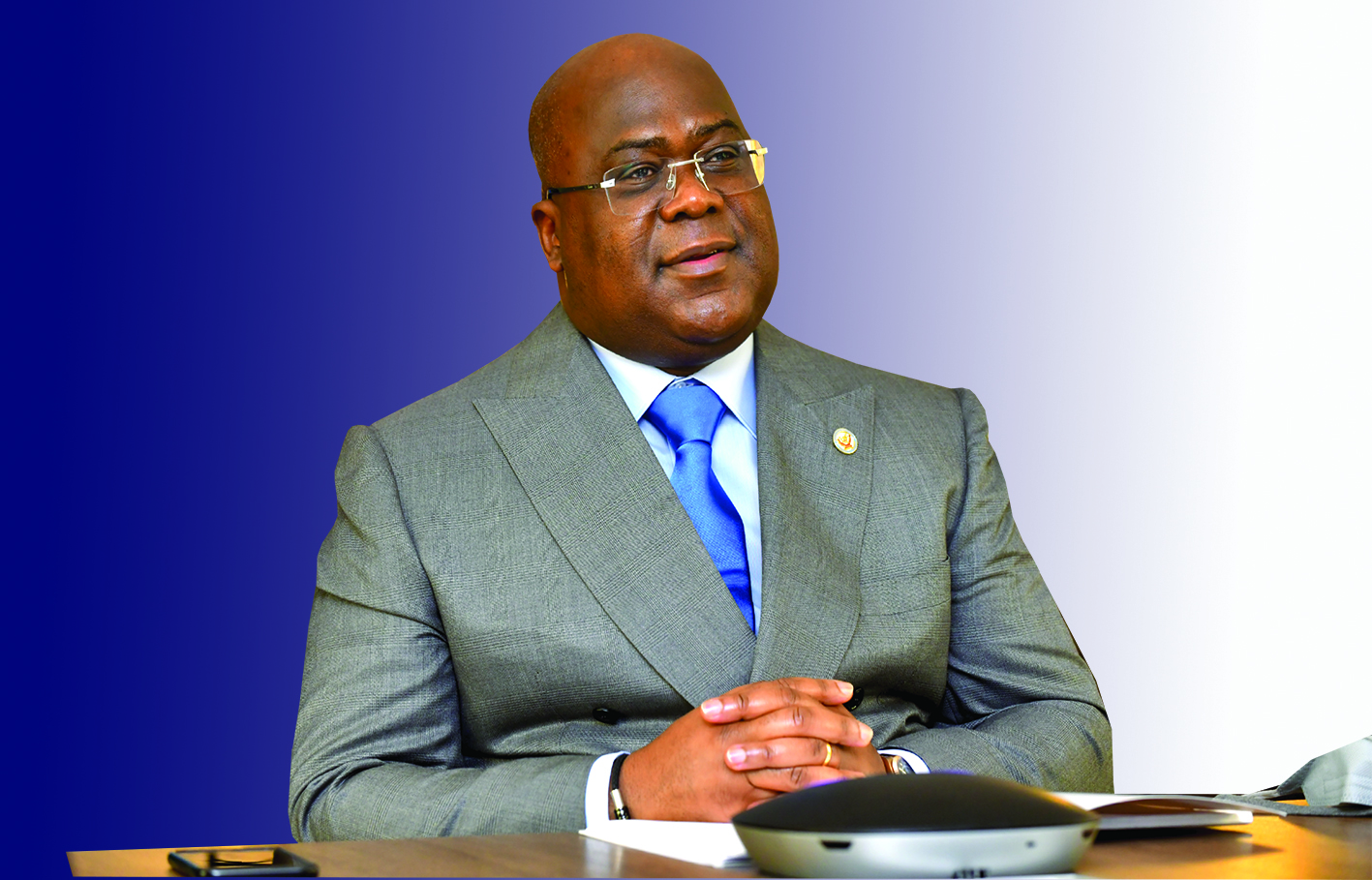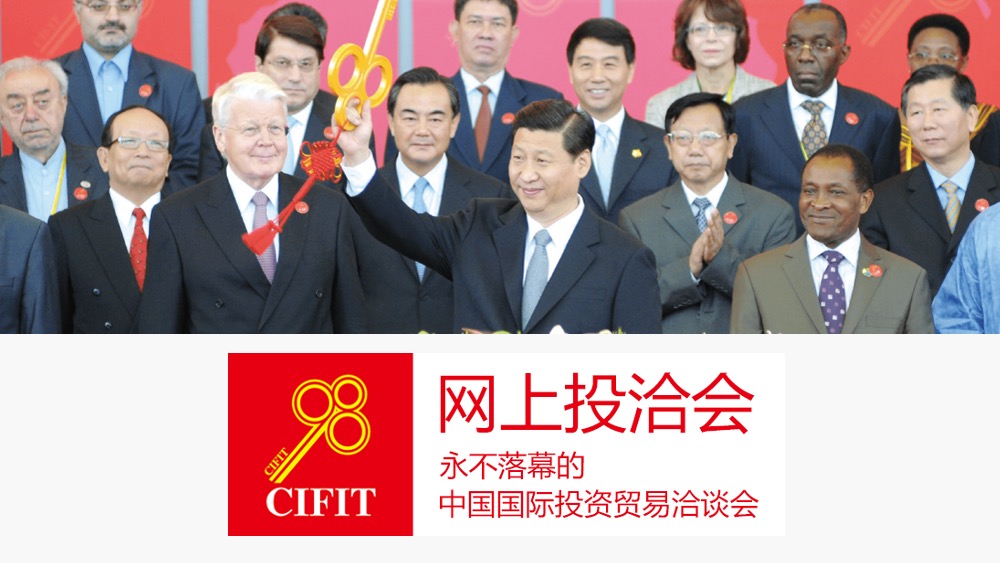
> OFFICIAL WEBSITE Invest in DRC | YOUR PROFIT CENTRE IN RDC
Président : Félix Tshisekedi
Premier ministre : Jean-Michel Sama Lukonde
Capitale : Kinshasa
Langues : French (official), Lingala (a lingua franca trade language), Kingwana (a dialect of Kiswahili or Swahili), Kikongo, Tshiluba
Gouvernement : No data
Bureau de statistique national : No data
Population, personnes : 89 561 404 (2020)
Surface en km2 : 2 267 050
PIB par habitant, US$ : 544 (2020)
PIB, milliards US$ en cours : 48,7 (2020)
Indice de GINI : 42,1 (2012)
Classement Facilité à faire des affaires : 183


CIFIT 2021- China International Fair for Investment and Trade
CEPI-RDC and CCI-RDC will be an exhibitor at the event with a stand to offer information on investment opportunities and competitive advantages that Africa offers to Chinese investors, as well as showcase recommended companies and institutions.
Sponsored by the Chinese Ministry for Trade, CIFIT is the only international event in the Asian country that focuses on promoting bilateral investments. Within the framework of the fair, it will be held the 2021 International Investment Forum in which government officials, economists and representatives of Global Fortune 500 companies will participate, to discuss global investment trends. In addition, there will be exhibition areas for emerging industries as Artificial Intelligence, environmental protection and biotechnology. The latest edition of CIFIT attracted 1,018 companies, of which 248 were foreigners from 69 countries and regions.
Government Policies
After taking office as the country’s supreme magistracy, His Excellency the President of the Republic, Head of State, based his political vision on the following four strategic axes:
- Human beings;
- Good Governance;
- Sustainable Economic Growth and
- Solidarity Society.
Priority pillars of the President of the Republic
The vision of the President of the Democratic Republic of the Congo is based on the following 20 priority pillars:
The pacification of the country, i.e. peace and security;
National reconciliation;
The consolidation of democracy;
The restoration of the rule of law and its authority, i.e. the National Army, the National Police, the Intelligence Services, Justice, Human Rights, Public Administration, Territorial Administration and Decentralization;
The rehabilitation of the image of diplomacy;
The fight against corruption and economic crimes;
The consolidation of macroeconomic stability and the consolidation of public finances as well as the reform of the financial system;
Education as the key to change and the main social lift;
The implementation of universal health coverage;
The promotion of employment and continuing vocational training;
The empowerment of women and the promotion of youth;
Improving the business climate and promoting entrepreneurship;
Combating climate change;
Access to electricity and water;
Spatial planning, development and modernization of enterprises;
Development of agriculture and agro-industry;
Diversification of the national economy and development of trade, industry and SMEs;
The revitalization of the mining and hydrocarbon sector by making them attractive and efficient;
The development of tourism, culture and the arts;
The fight against poverty, exclusion and vulnerability.
These various pillars are set out in the National Strategic Development Plan (PNSD) for the period 2019-2023. Indeed, this plan was validated by the Council of Ministers at its 16th meeting on Friday, December 27, 2019. It is the unifying framework for all sectoral development policies and strategies, aligned with all international and regional commitments made by the country, namely the Sustainable Development Goals (SDOs), the African Union Agenda 2063, the Paris Agreement on Climate Change, the Addis Ababa Framework Agreement for Peace…
It should be noted that the PNSD contains new objectives in three sequences, namely:
EnableDR Congo to achieve middle-income country status by 2030 with a per capita gross domestic product of US$ 1050;
Reach the status of an emerging country in 2040, corresponding to a GDP per capita of USD 4,000;
Join the club of developed countries in 2050.
Country’s political system
The Democratic Republic of the Congo has a semi-presidential regime in which the Head of State is elected by universal suffrage and has his or her own prerogatives. Moreover, the Government is accountable to Parliament.
The Democratic Republic of the Congo is a State governed by the rule of law and is currently governed by the Constitution of 18 February 2006, as amended by Act No. 11/002 of 20 January 2002.
With several dozen articles devoted to fundamental rights and public freedoms, this Constitution makes the Republic an independent, sovereign, united and indivisible, social, democratic and secular State governed by the rule of law. It establishes a semi-presidential regime. Under article 68, the institutions of the Republic are as follows:
The President of the Republic;
The Parliament;
The Government;
The Courts and Tribunals.
The institutional organization of the country responds to major concerns drawn from the political experience of the Congolese people. These are as follows:
Ensuring harmonious functioning of State institutions;
Avoiding conflicts;
Establishing the rule of law;
Countering any attempt at dictatorial drift;
Guarantee good governance;
Fight against impunity;
Ensure democratic alternation.
The President of the Republic is the Head of State. He represents the Nation and is the symbol of National Unity. He shall ensure respect for the Constitution and shall ensure, through his arbitration, the regular functioning of public authorities and institutions as well as the continuity of the State. He is the guarantor of national independence, territorial integrity, national sovereignty and respect for international treaties and agreements.
The President of the Republic shall be elected by direct universal suffrage for a term of five years, renewable once only.
He appoints the Prime Minister from within the parliamentary majority. The regulatory acts that he signs in matters falling within the purview of the Government are covered by the countersignature of the Prime Minister, who assumes responsibility for them before the National Assembly.
Foreign affairs, defense and security, which were formerly the exclusive domain of the Head of State, have now become areas of collaboration between him and the Government.
The Government is composed of the Prime Minister, Deputy Prime Ministers, Ministers of State, Ministers, Ministers Delegate and Deputy Ministers.
At the instigation of the Prime Minister, he remains the Master of the conduct of the Nation’s policy, which he defines in consultation with the President of the Republic. The Government is responsible for its action before the National Assembly, which may collectively sanction it by adopting a motion of censure.
The Prime Minister shall ensure the execution of laws and shall have regulatory power subject to the prerogatives devolved upon the President of the Republic.
The ILUNGA ILUNKAMBA Government has been in office since 2019 and is the emanation of the parliamentary majority coalition resulting from the elections of 30 December 2019.
The Parliament is composed of two chambers, namely the National Assembly and the Senate. It passes laws, controls the Government, portfolio companies, public institutions and services.
The members of the Senate bear the title of Senator. The Senator represents his or her province but his or her mandate is national. The provincial assemblies elect senators at the second level for a five-year term. Like deputies, they are eligible for re-election.
The Constitution of 18 February 2006 proclaims the independence of the judiciary, whose members are managed by the Supreme Council of the Magistracy, composed exclusively of magistrates. For greater efficiency, specialization and speed in the performance of their respective missions, the courts and tribunals are divided into three jurisdictional orders:
Courts of law under the control of the Court of Cassation;
The courts of the administrative order headed by the Council of State;
The Constitutional Court.
It should be stressed that in terms of administrative organization, the DRC is a decentralized State. The provinces and other decentralized entities, namely the city, the commune, the sector and the chiefdom, enjoy free administration and autonomy in the management of their economic, human, financial and technical resources.
The Provincial Institutions are the Provincial Assembly and the Provincial Government. The Provincial Assembly is the deliberative organ of the Province. It deliberates in the area of competence reserved to the Province and controls the Provincial Government, which is the executive organ.
Investment opportunities
FISHING AND LIVESTOCK FARMING
FORESTRY
NEW INFORMATION AND COMMUNICATION TECHNOLOGIES
HOUSING AND REAL ESTATE
ENERGY
INSURANCE
TRANSPORT
TOURISM
INDUSTRY
Programme présidentiel
Présentation Le Programme présidentiel a été conçu par une équipe d’experts, à l’initiative du Chef de l’Etat S.E.M Félix-Antoine Tshisekedi Tshilombo, sous la supervision de son Cabinet. Cette équipe a mené une réflexion stratégique pour mettre en perspective le programme CACH, renforcer sa cohérence et décliner les réformes et les actions prioritaires. Par la suite, le Programme présidentiel a été transformé en programme du gouvernement passant de 20 piliers à 15 piliers.
Vision du Président de la République Fonder un État moderne, vaincre la pauvreté, décrétée grande cause nationale pour construire un Congo fort tourné vers son développement dans la paix et la sécurité, un Congo réconcilié avec lui-même.
%
Increase
%
Increase
%
Increase
%
Increase
Scope of activities
Our promotional activities as described above affect all sectors of economic activities, amongst others:
Agriculture
Agro-industry
Livestock farming
Fishing
Manufacturing Industries
Hotels and Restaurants
Buildings and public works
Social housing
Wood and forestry
Air, road, sea and river transport
Telecommunications
Information Technology
Energy
Textile
Miscellaneous services
Mining, Banking and Insurance (for advice)
Regarding the approval or admission of projects to the Investment Code advantages, projects in the mining, banking and insurance sectors are not eligible and consequently, CEPI intervenes only to give its technical opinions.
Publications
Learn more about project approval
Investor’s journey
Multiple incentives granted to investors
Investment Opportunities by sector In
Investor’s journey
Invest in the DRC
Multiple incentives granted to investors
Discover CEPI through 8 focus points
- Mining, Wood and forestry 80%
- Agriculture 50%
- Telecommunications, Information Technology 75%
- Manufacturing Industries 60%
The Results Were Amazing
Invest in RDCongo
Centre Economique pour la Promotion des Investissements en RDC, CEPI-RDC
Leading Team
Chef : KASANDA WA LUNDA WILLY
First Deputy Chef : PATRICK HO YAN TSUI
Second Deputy Chef: LIAN MIN GUO
Director, Multilateral Cooperation Department, Asia Division : Aries, Chi Chiu CHEUNG
Chambre de Commerce Internationale de la Republique Democratique du Congo, CCI-RDC
Leading Team
Président du Conseil d’Administration : Monsieur ON KHENG HAK
Président du Comité de gestion : KASAND WA LUNDA Willy
Secrétaire Générale : TSUI HO YAN
1er Secrétaire adjoint : GUO LIANMIN
2ème Secrétaire Général adjoint : INGULI SENGI Marry KILUMBA
Administrateur : KABASO Gisèle
Trésorière Générale : KASONGO KILUMBA
Administrateur : KIKANGALA Antoine
Administrateur : FONO Jean Baptiste
Administrateur : Noél LUNGELA
Directeur, Département de la coopération multilatérale, Division d’Asie : Aries, Chi Chiu CHEUNG
CEPI-RDC | CCI-RDC
Phone: +243(0) 84 84 02 713
Mail: info@cepi-drcongo.org
Terms of Service | Privacy Policy | Security Policy | Disclaimer
Copyright © Centre Economique pour la Promotion des Investissements en RDC (CEPI) 2021
This site is best viewed using Google Chrome at screen resolution of 1920 x 1080 pixels, and is also mobile responsive.